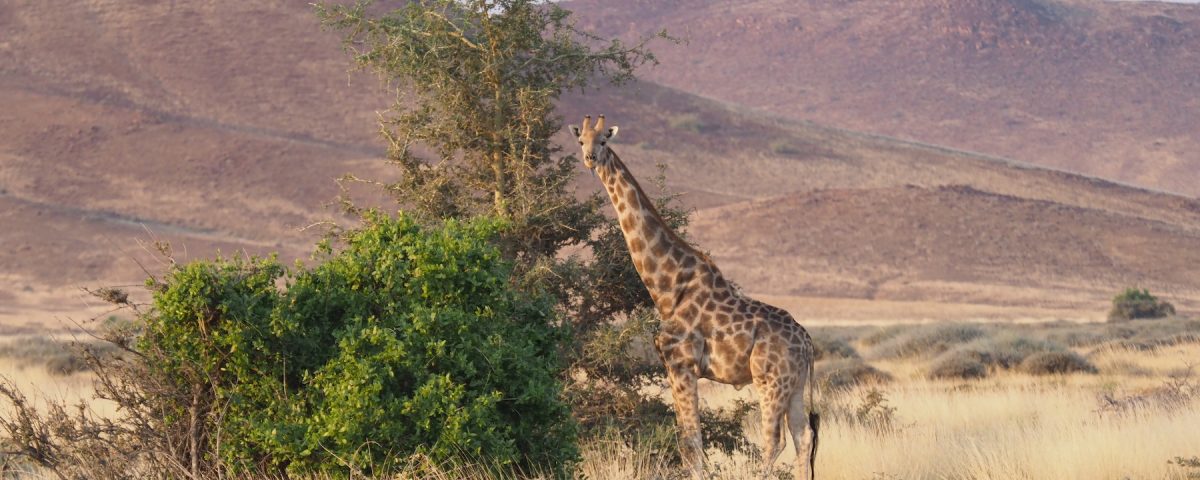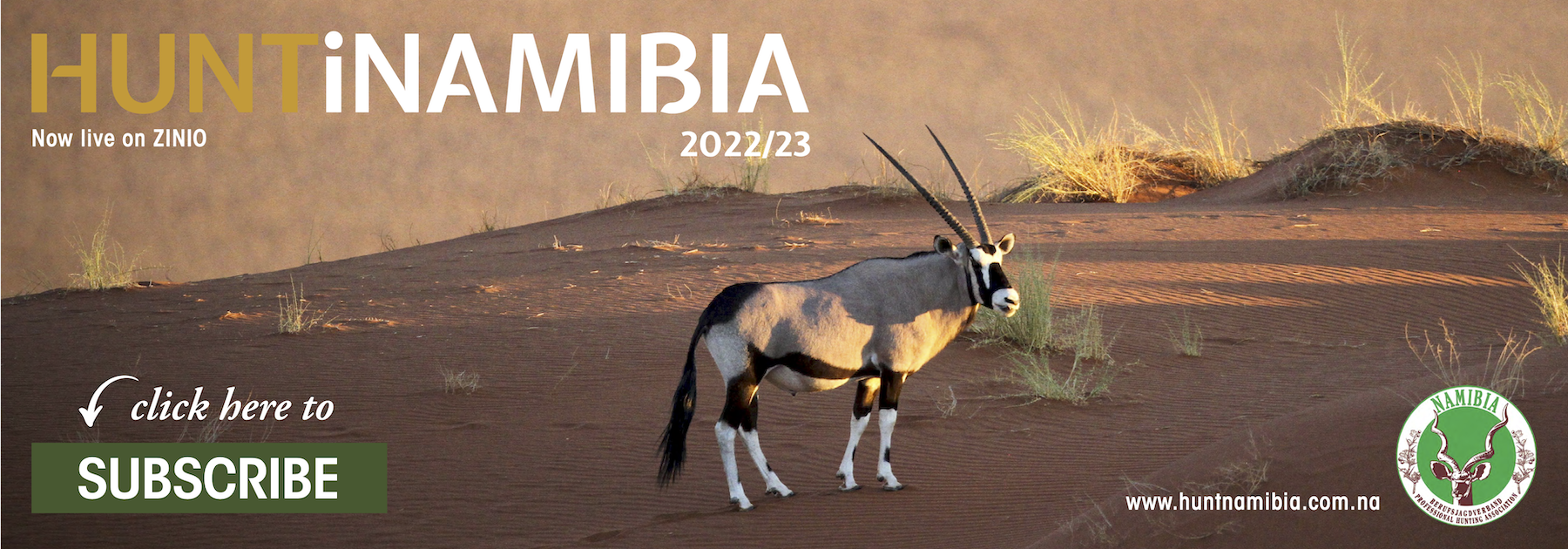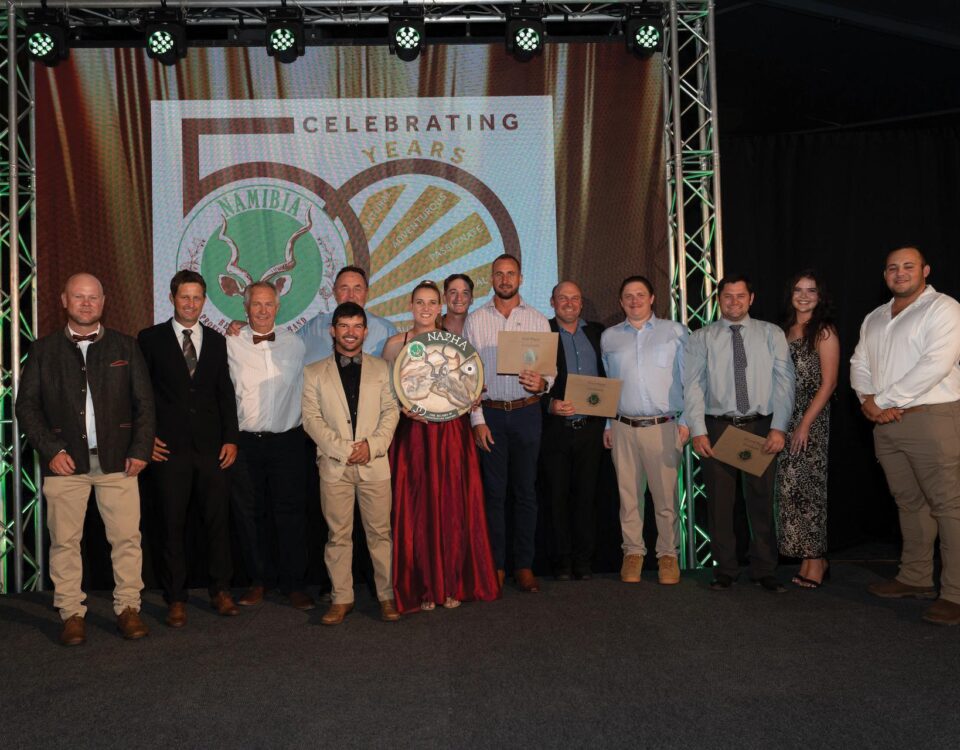
Message from the Editor 2022
May 15, 2022
ARU GAME LODGES
May 15, 2022We love to hunt. Hunting is part of our upbringing and deeply entrenched into our value system. This is simply who we are as dedicated conservationists. Hunting matters to us, because we are passionate about it and it gives us a sense of belonging in the circle of life. Members of NAPHA are the true ambassadors who do care for the wildlife and their environment, irrespective of whether we will put a financial value to it or not.
Statistical data by a leading research company in Namibia found that 3% of tourist arrivals are indeed conservation hunters. Although they make up only a fraction of the entire market, they account for close to 20% of all the tourism revenue. Namibia’s tourism sector has the ability to provide an unparalleled nature and wildlife-centred experience without surrendering key sustainability initiatives [UNDP, 2020].
Yes, Africa, and especially we in Namibia, are heavily dependent on the international markets’ interest in our wildlife. We use the income derived from conservation hunting to finance our conservation efforts; livelihoods and much more is at stake without the foreign earnings. Sustainable hunting brings multiple solutions to counter the ever-increasing human-wildlife conflicts encountered especially in rural areas. Some form of sanity prevailed when the UK, which is not a key market for Namibia, admitted that a possible import ban on trophies is not such a good idea – at least for the moment.
Other European countries, such as Germany, tried to follow suit in a similar manner by imposing a moratorium to market conservation hunts at Europe’s biggest hunting show in Dortmund. Luckily, such a move by the German Green Party was turned down during Dortmund’s City Council meeting. During the livestreaming of the discussion, we listened to the various arguments for and against the moratorium.
The views and arguments presented by the various politicians were characterised by the same problems. It is unfortunately an emotional debate by people who live detached from nature and far away from all our costs and benefits associated with our well-regulated and sustainable use concepts.
As a hunting community we continually evolve and we see an obligation to ensure that our actions are truly sustainable and not detrimental to the population at large. NAPHA is proud to say that we have introduced new initiatives such as the age-related trophy measuring system, ensuring that hunting remains sustainable.
The establishment of our new NAPHA School of Conservation, where we educate and train aspiring hunting professionals, shows that we are optimistic and serious about our future. NAPHA does not operate in a void and is heavily dependent on our national and international partners. Without the active and generous support from various hunters and like-minded associations we would not be able to fund and host community outreach projects facilitated by our Hunters Support Education Committee.
We applaud our government for creating through the Ministry of Environment, Forestry & Tourism (MEFT) an enabling environment where we as hunting professionals can live our dream by allowing conservation hunting as an approved method to utilise our natural resources. Almost half of Namibia is under some form of conservation management and has a proud heritage of conservation which is recognised internationally.
All of us are happy that our Huntinamibia is back, now in a revitalised and new digital format. Let us use this new platform to market and display what Namibia and its hunting professionals have to offer. Let us remain staunch advocates for responsible, sustainable, and ethical conservation hunting in Namibia.
Safari greetings from the Land of the Brave.




